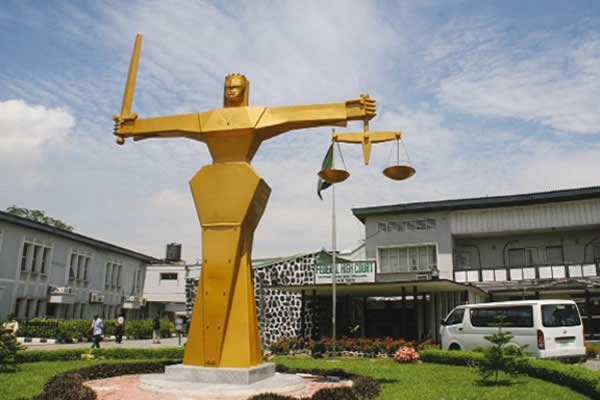With a series of governorship elections about to be conducted, there is little doubt that the Election Petition Tribunal, Court of Appeal, and the Supreme Court will soon be preoccupied determining election petitions. These days, no governorship election is contested without subsequent legal battles.
In the recent Edo State governorship election, the Peoples Democratic Party (PDP) candidate, who was the declared runner-up, has vowed to “reclaim his mandate” through the legal system. In effect, he intends to try and overturn the mandate given to the All Progressives Congress’ (APC) candidate through a Certificate of Return issued by the Independent National Electoral Commission (INEC).
The current practice in which “winners” declared by INEC are sworn-in long before petitions have been determined is an anomaly. Under normal circumstances, no governor should be sworn in until after pending election petitions have been dispensed with. However, enforcing such a provision would leave a lacuna in leadership of almost one year before any governor can be sworn in.
Candidates contesting governorship election results spend almost one year in various courts before finding out whether their petition is successful or not! This extended period comprises six months at the Election Petitions Tribunal, two months at the Court of Appeal and a further two months at the Supreme Court! After all this, justice may still not be served because no matter the verdict, electoral petition judgments are always marred by allegations of bias and political interference.
- Subversion of democracy by presidents responsible for coups in W/Africa – Prof Jibrin
- Dangote Refinery will propel Africa out of poverty – Ibn Chambas
There are indeed enough good reasons why both the judiciary and INEC are held low in public esteem and public trust and confidence in the election process has been virtually eroded.
Those who believe that the role of the judiciary in elections is to uphold the popular will of the people are mistaken. Legal practitioners are at pains to explain that courts never declare people “innocent” of a crime, rather they declare them “not guilty as charged”. This means that they could be guilty, but either the charges were framed in the wrong manner, or insufficient evidence was submitted to successfully prosecute the case. Neither is the fault of the court or judge.
It is ridiculous and illogical that the burden of proof in election petitions rests with the petitioners who did not conduct the elections rather than with INEC which did. It stands to reason that INEC owes the nation a duty of care to provide the documents used to substantiate the results it declares.
The commission is paid humongous sums of money to conduct elections and consistently conducts them in a manner which is neither free nor fair. This happens routinely because they are under no legal obligation to prove how their results come about. It defies logic to absolve INEC of responsibility blame for not making available to disaffected petitioners, as well as the general public, the documents which they used to compile the figures they announced.
The main purpose of having laws is to ensure justice and equity. Problems arise when those who are to apply the law or enforce it, do so unjustly. That is simply a recipe for anarchy. The three-week timeline to file all governorship election petitions is ridiculous considering that some states have up to 44 local governments while others have only 15!
The onus on the petitioner to prove “substantial non-compliance” is a mountain to climb. In truth, the time limit for finishing the presentation of an election petition is 180 days, and it is not really possible to start the process by filing over 200,000 witness statements within 21 days.
Nigerians mistakenly tend to see the Chief Justice of Nigeria (CJN) as the custodian of justice in the nation, which of course is not true. The CJN is the head of the judicial arm of government and presides over the Supreme Court and the National Judicial Council. It has long since been argued that the CJN should not be a presidential appointee. The position carries too many independent responsibilities for the holder to be a mere appointee at the whim of the president. The CJN must always bear in mind the words of the legendary British Master of the Rolls Lord Denning, who said that in his court he would “not allow people to use the law to escape justice”! It’s an all too well-known fact that Nigerian courts are more useful in evading justice than obtaining it! The admonition “go to court” has become a political joke in Nigeria as only the most naive politicians or citizens believe that courts dispense justice in election matters.
Perhaps the biggest headache for the newly appointed CJN is that the Supreme Court has to adjudicate over the governorship and presidential elections. This is a major cause of disenchantment with court verdicts. In order for the new CJN to perform creditably, she is urged to uphold the independence of the judiciary and repair the “house of rot” which it has become.
For public trust to be restored in the electoral process INEC the judiciary must rise to the task of ensuring that everyone conforms to the spirit of justice and equity. Although legal technicalities must not be an overriding consideration in dispensing justice, losers should also not assert with little evidence that they won the election.

 Join Daily Trust WhatsApp Community For Quick Access To News and Happenings Around You.
Join Daily Trust WhatsApp Community For Quick Access To News and Happenings Around You.

